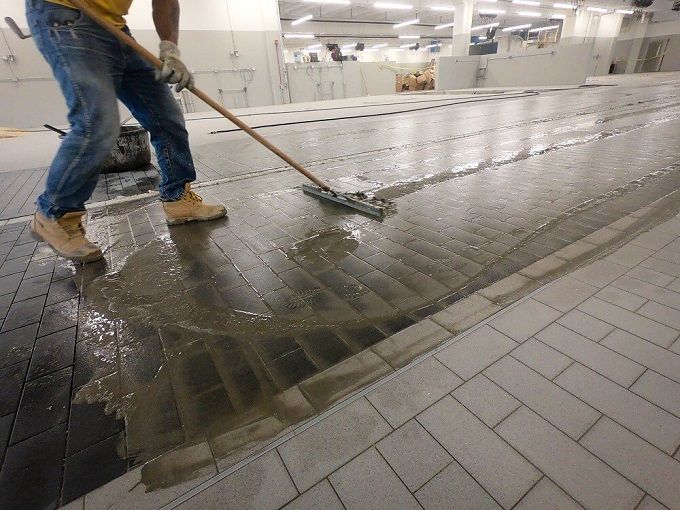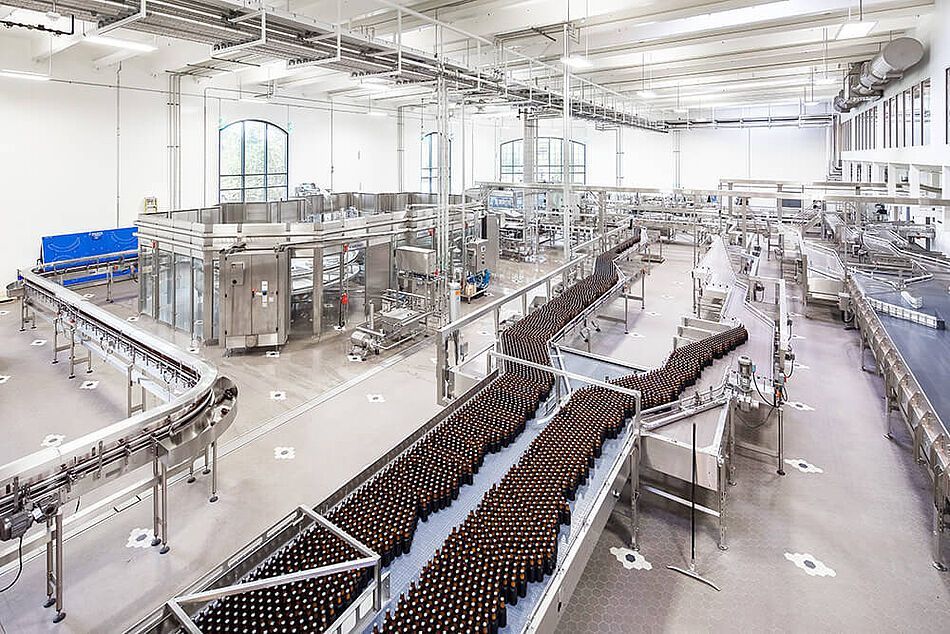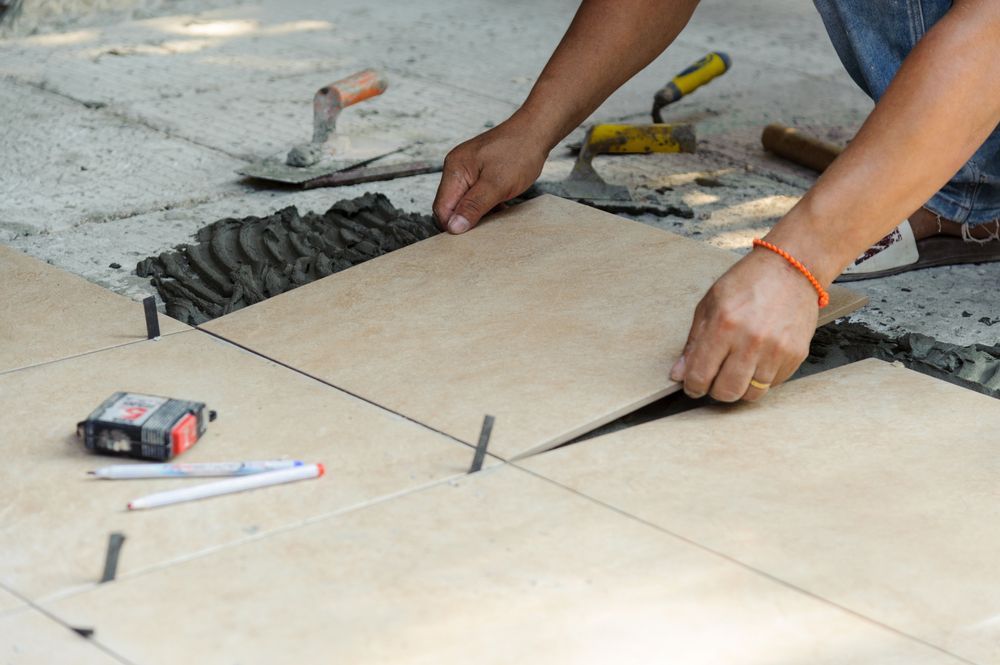Written By: Argelith
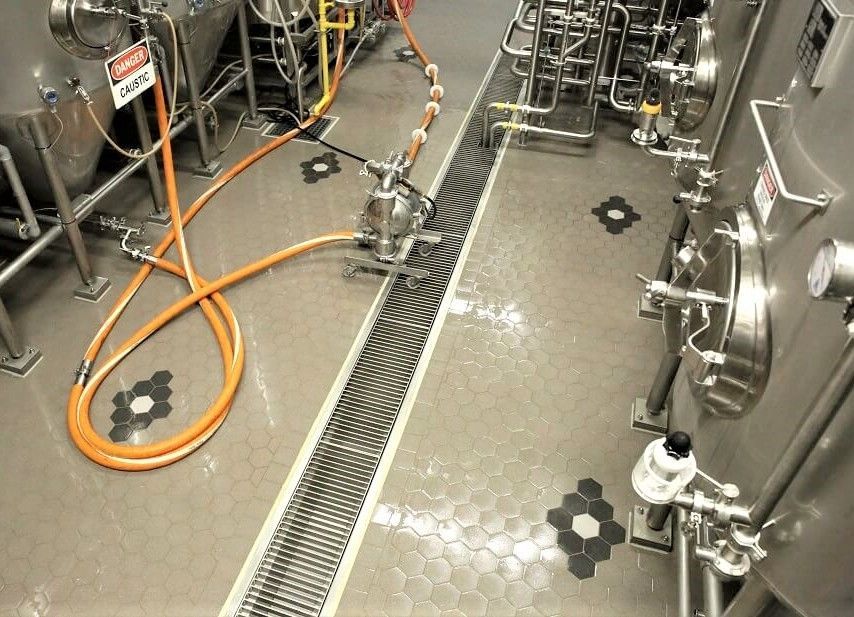
Questions to ask and factors to consider when choosing the best industrial flooring for your business.
Your business needs the right environment to prosper. Without a suitable space, businesses will spend time and money putting temporary fixes on recurring problems - resources that could be spent instead on improving products and creating opportunities.
Manufacturers and industrial businesses have particular requirements. An industrial floor is the literal foundation of all manufacturing processes, and it must bear whatever environmental stress those processes create. Businesses that choose flooring based on cost alone – even with the vague idea of upgrading down the line – will see their initial savings rapidly swallowed up by the cost of maintaining a floor not suited to their needs.
When choosing industrial flooring, consider the material’s durability, its behavior under high traffic, and how it reacts to chemical and water exposure. It is also important to understand a floor’s installation and maintenance requirements for long-term reliability.
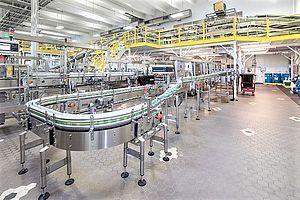
WHAT IS THE MOST DURABLE INDUSTRIAL FLOORING?
The durability of any floor depends on its use. A flooring material specifically suited to the challenges of its facility is far more likely to stand the test of time, saving companies the long-term costs of maintenance, repair, and replacement.
It is common to employ multiple flooring surfaces throughout a single facility, tailoring each zone to the activity that takes place there. An auto dealer’s showroom, for example, does not encounter the harsh chemicals and sharp impacts that are all in a day’s work in the service shop. A dealer on a budget may choose a cheaper, less resilient floor for the showroom to afford a more hard-wearing surface for the shop bays.
When looking at industrial flooring options, ask:
- Will the floor support traffic, equipment, or both?
Will people be walking or driving on the floor? Areas with high foot traffic should be even and slip resistant to prevent falls. A floor that supports vehicle traffic should be able to support and disperse the rolling weight of the vehicle and be abrasion resistant to prevent wear patterns. The floor under heavy machinery must be able to support the machine's full weight and protect the subfloor from any vibrations. If the machine generates heat or cold, or if there is a possibility that ingredients or chemicals may spill on the surrounding floor, those factors must be taken into account.
- Is this area prone to temperature swings?
Some flooring ideal at moderate temperatures will soften under the extreme heat of a commercial oven or crack in the extreme cold of a deep freeze. Consider not only the average temperature of the environment, but any extreme temperature swings the floor may have to endure.
“If you have a deep freezer next to a warm room, you have to realize that every time you open that door the floor outside is microfreezing in a blast of cold air,” says Spencer Martin, Argelith’s national sales director. “A qualified installer is going to recognize that and use some kind of separation between those floors.”
Nearly all flooring materials will expand and contract under temperature shifts. The floor should be designed to accommodate this movement, not fight it. A rigid material that does not allow thermal expansion and contraction is likely to crack due to the movement of the subfloor. Rigid floor coverings should be installed with expansion joints to accommodate this movement.
- Is the environment wet or dry?
Wet environments like breweries or slaughterhouses have more requirements than dry environments like bakeries or retailers. Thanks to gravity, everything eventually ends up on the floor. Factors to consider when flooring a wet environment include absorption, slip resistance, and drainage.
- What substances will end up on the floor?
Chemical resistance refers to a floor’s ability to withstand exposure to acids, oils, and caustic materials. An auto lube shop works with very different chemicals than a soft drink manufacturer, but both require flooring that can withstand chemical attack. A facility designer must know exactly what substances may hit the floor and how they affect the various components of a flooring system. Substances include materials required to operate equipment, like oil or brake dust, as well as ingredients and effluent. A chemical resistant flooring system includes not only the main floor but also grouts, topcoats, or underlayments.
- What is the lifespan of this facility?
If this is a starter location for a growing business and owners plan to move in three to five years, a low-priced option like epoxy or polished concrete will work just fine. There’s no need to buy a 30-year floor for a five-year location. For a company that plans to be in the same location for decades, the upfront savings of a lightweight floor will soon disappear in the constant cycle of repairing, resealing, or replacing. A heavy-duty floor like vitrified tile, while more expensive at the outset, lasts longer with less maintenance, and thus costs less per year to own.
- What hygiene or other industrial standards exist for this facility?
Facilities that produce food, beverages, pharmaceuticals, or other products for consumption are subject to USDA or FDA hygiene standards. Other industries may also have standards or industry guidelines established to ensure facility and product safety.
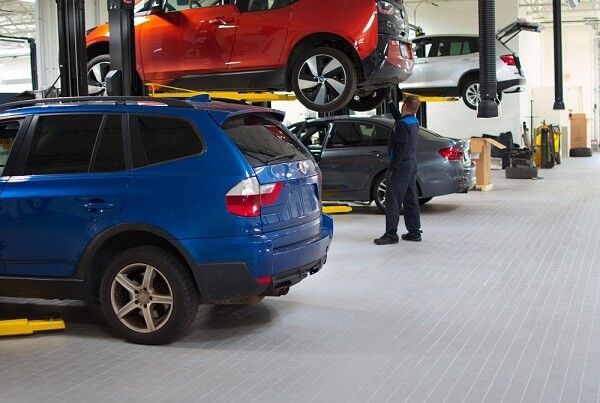
THE BEST FLOORING FOR HIGH TRAFFIC AREAS
A “high traffic area” means, quite simply, an area that is frequently traveled by foot or by vehicle. A grocery store filled with walking customers and rolling shopping carts, an auto service shop with walking technicians and driving cars, and a restaurant kitchen filled with rushing staff are all examples of high traffic areas.
Abrasion Resistance
It is important for high traffic flooring to resist abrasion. Hard wearing industrial flooring should be able to hold up under years of traffic without grooves or wear patterns appearing along frequently traveled paths. These wear patterns are more than unsightly; as the surface layer of a floor wears away, the floor may become susceptible to all those things it was supposed to resist, like water and chemicals.
Thin coatings are not well suited to high traffic areas for this reason. For long-term durability, companies should look to thick or full-body floor coverings. A full-body flooring material has the same density, hardness, color, and resilience throughout. Surface scratches, scrapes, or wear patterns on full-body flooring are less visible and do not affect the resistant properties of the floor.
Slip Resistance
Slip resistance is an important consideration in areas with high foot traffic. Companies that cut corners on this feature may find themselves on the wrong end of expensive lawsuits or workers’ compensation claims after a slip-and-fall accident.
The amount of slip resistance needed depends on the environment. The floor in a car wash, for example, is virtually always covered by slippery substances like water, soap, and wax, while bakery floors stay mostly dry. When choosing a flooring surface, the bakery could safely opt for a lower profile than the car wash.
Industrial anti-slip flooring typically relies on either texture or grit to increase traction. Texture is found in flooring surfaces like dry-pressed tile. At the time of manufacture, tiles are pressed into molds that leave a textured impression on their surface. The deeper the impression, the higher the tile’s slip resistance.
Liquid flooring options rely upon grit to provide slip resistance. At some point after the floor coating has been poured, a fine, gritty substance is scattered across the top. As the floor cures, this grit becomes a permanent part of the surface. A good flooring contractor will be careful to spread the grit evenly across the floor to avoid unexpected slick spots. If the coating begins to peel, wear off, or is otherwise compromised, it is important to repair as soon as possible, as the underlying surface will not be slip resistant.
A floor’s cleanability is directly related to its slip resistance. The same texture or roughness that provides traction underfoot creates small nooks and crannies where dirt can settle. The more slip resistant the floor, the deeper these crannies are, making them difficult to clean with conventional methods like mopping. Most brands of industrial tile, including Argelith, have a baked-on finish that reduces friction and enhances cleanability. For easiest cleaning, companies should choose the lowest profile that provides the required level of grip. A floor scrubber equipped with a vacuum is an effective way to remove soil from a slip resistant floor.
DO I NEED CORROSION RESISTANT FLOORING?
All industrial flooring begins with a concrete subfloor. Industrial floor coverings come into play because most concrete, on its own, is porous and is not chemical resistant.
Chemical reactions damage a floor’s integrity. In some cases, the reaction is immediate and visible in the form of a stain. Concrete corrodes quickly under chemical attack, becoming dusty, cracked and pitted.
In many cases, however, chemical attack is slow and insidious, invisibly weakening the floor covering and allowing water, chemicals, and microbes access to the vulnerable subfloor.
It is vital facility designers know exactly what substances are being used in each area of the facility and how they react with the elements that make up the floor. A bakery, for example, may use acidic substances like sugar and fruit juice; alkaline substances like salt; and oily substances like food oils and nuts. The person or team specifying flooring for the bakery must understand how each of these ingredients will react with the flooring material being considered.
WATERPROOF FLOOR OPTIONS
Water is the natural enemy of concrete. As a concrete floor absorbs moisture, it creates a lush breeding ground for mold and microbes. Iron rebar deep in the concrete corrodes under the damp conditions. As the water freezes and thaws, its expansion and contraction is too much for the concrete to bear, causing the floor to buckle and crack.
Chemical floor coatings rely upon sealants or water-resistant topcoats to protect the subfloor from moisture damage. These sealants can be effective as long as they are carefully monitored for cracks and wear and are reapplied periodically. The frequency of reapplication depends on a variety of factors.
While glazed tile also uses a surface coating to repel moisture, vitrified ceramic relies upon its density to resist water damage. The manufacture of pressed vitrified tiles involves a series of steps, each of which presses the molecules in the tile closer and closer together. By the time an Argelith fully vitrified tile leaves the factory, there is not enough space between the ceramic molecules to allow water to penetrate, resulting in a permanent absorption rate of less than 0.1 percent.
When tiling areas with heavy or frequent water exposure, a facility designer must be careful to specify water-resistant adhesive and grout. Fully vitrified tile laid with an epoxy grout is water resistant, but just like a full epoxy floor, the epoxy grout may eventually require reapplication. A water-resistant adhesive prevents any moisture that seeps through a damaged grout joint from affecting the subfloor beneath.
Wet areas like car washes or beverage production lines can be further protected with the addition of wall tile and cove base. Wall tile, whether vitrified or glazed, protects the wall in the splash zone of wet applications. Cove base joins the floor and the wall on a curve, rather than a 90-degree angle. This allows water to roll down the curve and onto the floor, which should be sloped to a drain, rather than settling into the joint between wall and floor.
Drains are another important aspect of flooring in a wet industrial zone. Like the flooring itself, drains should be made of a material that will not react or corrode under exposure to the substances used in the industry. Floors in wet areas should be sloped to drains and laid in such a way that water flows freely to the drain rather than puddling or traveling in channels.
CHOOSING A FLOORING CONTRACTOR
A successful industrial flooring installation is not a do-it-yourself project.
Cash-strapped business owners may think flooring their facility is akin to painting their garage floor or tiling the bathroom in their home. This naivete is a mistake that could cost the business dearly when the amateur flooring job eventually fails.
An effective industrial floor has at least four parts: the properly prepped subfloor; the underlayment, base coat, or mudbed; the main body of the floor; and a topcoat or grout. In some cases, additional layers like slipsheets or moisture vapor transmission barriers may be required. Failure in any one of these levels could lead to failure and expensive remediation of the entire floor.
A business that hesitates to spend on installation will almost certainly be forced to spend on remediation.
When choosing a flooring installer, make sure the chosen contractor is experienced with your industry. Experienced installers should be able to provide references within the same industry as the prospective client. In an ideal scenario, you should also be able to visit these references and see the installation firsthand.
A qualified installer will be familiar with the demands of the industry and with any pertinent regulations or requirements, such as USDA or FDA regulations for food production facilities.
Qualified installers have the experience and education to place expansion joints in the optimum locations to prevent cracking and understand the ideal environmental conditions under which to lay the floor.
A reputable installer will have access to materials and tools that may not be readily available at do-it-yourself stores. He or she should be able to tell the prospective client what products are recommended for the floor and why. The experienced installer will understand how each element of the floor works with the others and can ensure each product used in the installation is compatible with the others.
ENVIRONMENTALLY SAFE FLOORING
While a building material’s impact on health and the environment may not be your first consideration, firms are reporting it as increasingly relevant.
Some building materials emit chemical fumes or volatile organic compounds (VOCs). Some people have a heightened sensitivity to these products and may find it difficult to work around them. Facilities that manufacture products for consumption, like food and pharmaceuticals, may also have concerns about product contamination from abraded particles of these materials. A product’s recyclability at the end of its lifespan and the environmental impact of its manufacture are also features to consider when attempting to choose green building materials.
WHEN TO OPT FOR INDUSTRIAL TILE
Argelith’s fully vitrified industrial tile is a hard-wearing option for facilities with demanding environments. The strength and density of the tile supports heavy weight, and when properly installed distributes the weight evenly across a wide area of the subfloor. The hardening process the tiles undergo results in a surface that meets or exceeds industry standards in abrasion resistance, and the tiles are a full-body floor covering, making them a durable choice in high traffic areas.
Argelith’s fully vitrified tiles have a water absorption rate of less than 0.1%, making them suitable for wet environments when installed with a water-resistant grout and adhesive. Hexalith tiles are designed to slope to drains at any angle. The tiles are butt jointed, which reduces dependence on grout and results in small, flat grout lines that do not channel water.
Tiles are available in an assortment of slip resistant profiles. Because the profile relies upon texture, not grit, soil is less likely to cling to the surface.
Ceramic is a natural, chemically stable substance that does not react to chemical exposure. It heats and cools slowly and evenly, and when installed with appropriate expansion joints can be used under boilers, in deep freezers, or at any temperature in between. HACCP-certified ceramic is naturally hygienic and provides no refuge for microbial contaminants. At the end of its useful life, it can be crushed into recycled aggregate and used in future building projects.
Industries well suited to industrial tile floors include:
- Auto service and oil change shops
- Car washes
- Breweries, wineries and distilleries
- Soft drink, juice, and ready-to-drink beverage bottlers
- Bakeries and processed food manufacturers
- Slaughterhouses and meat packing facilities
- Dairies
- Pharmaceutical and health supplement laboratories
- Cannabis growing facilities
- Chemical manufacturers

